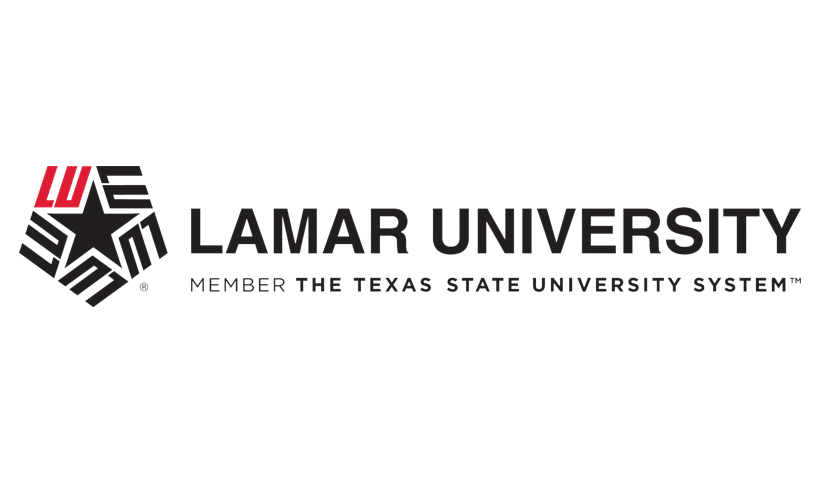Different client populations, environments, and situations require the help of mental health professionals with specific skills and qualifications. A licensed marriage and family therapist, also known as an LMFT, works with families and couples who need guidance and support. A licensed clinical social worker, or LCSW, also uses counseling strategies, but they serve a wider range of clients and also work closely with social service organizations.
If you’re interested in a career in mental health treatment, LMFT vs LCSW positions may both be appealing. Examining the similarities and differences between these professional roles may help clarify your decision.
LMFT vs. LCSW: Similarities and Differences
LCSWs and LMFTs sometimes serve the same or very similar clients. However, they have separate roles and different impacts on their communities.
Overview
LMFTs and LCSWs are both mental health professionals who work with clients struggling with various aspects of their lives, including relationships, social interactions, and mental health conditions. They assess and diagnose clients’ challenges, needs, and disorders, build treatment plans, and offer therapy.
Although both LMFTs and LCSWs provide counseling services to clients, they take different approaches to their work. As a result, they’re distinct in several areas, including:
- Education
- Daily tasks
- Work environments
- Licensure requirements
Developing a deeper understanding of these unique roles and their responsibilities is helpful when determining which career path to pursue.
Consider a Featured Online Counseling Program
| School and Program Information | Online Program? Entry Requirements | Course Information | |
|---|---|---|---|
|
Walden University
MS in Marriage, Couple, and Family Counseling
 CACREP Accredited CACREP Accredited |
✔ Online
|
Learn how to support the well-being of your students as they cope with complex personal and family challenges. Explore human sexual development as well as the relationships and family dynamics impacting young people’s lives today. Build the cross-cultural competencies and skills required to understand family structures, life-cycle dynamics, intergenerational influences, and healthy family functioning. The optional accelerated track is designed for students who are interested in taking three courses per quarter and potentially finishing their program in a shorter time frame. The accelerated track has the same curriculum, residencies, and field experience requirements as the general track, but requires a strong time commitment and is best suited for students who can dedicate themselves full time to their studies.
|
Learn More |
|
Northwestern University
Master of Science in Marriage and Family Therapy
COAMFTE Accredited
|
✔ Online
GRE Not Required
Bachelor's Required |
Complete your COAMFTE-accredited MFT online program in as few as 21 months. No GRE required.
|
Learn More |
|
Grand Canyon University
Master's Degree in Counseling
 CACREP Accredited CACREP Accredited |
✔ Online
|
CACREP-accredited MS in Clinical Mental Health Counseling. Emphases: Marriage & Family Therapy, Christian Counseling, Childhood & Adolescence Disorders, & Trauma.
|
Learn More |
|
Grand Canyon University
Degrees in Social Work
Bachelors and Masters
|
✔ Online
No GRE Required
|
Created by the College of Humanities and Social Sciences, this social work degree program prepares students to assist in improving the well-being of individuals, families, and communities while working with diverse groups of people in a variety of settings. Choose GCU's MSW Advanced Standing program if you have already completed a CSWE-accredited bachelor’s degree in social work. Accredited by the Council on Social Work Education (CSWE). As a private university, GCU has the same in-state and out-of-state tuition. Financial aid may be available if you qualify!
|
Learn More |
|
Liberty University
MSW: Social Work
SACSCOC
|
✔ Online
100% online, 8-week courses
|
This program offers a general cognate and an individual and family clinical cognate. No matter which option you choose, you’ll receive advanced generalist training in social policy, research, and practice — as well as the opportunity to apply what you’ve learned in your field. Online and on campus. Training Champions for Christ since 1971.
|
Learn More |
|
Liberty University
MA: Marriage and Family Therapy
SACSCOC
|
✔ Online
Online with required intensives
|
A Liberty University marriage and family therapy master’s program online can prepare you to help individuals, couples, and families find healing through counseling. Online and on campus. Training Champions for Christ since 1971.
|
Learn More |
|
National University
Master of Arts in Marriage and Family Therapy
COAMFTE Accredited
|
✔ Online
GRE Scores Not Required
|
Earn your masters in Marriage and Family Therapy at National University. COAMFTE and IACSTE accredited.
|
Learn More |
|
National University
Master of Social Work
COAMFTE Accredited
|
✔ Online
GRE Scores Not Required
|
Our Master of Social Work (MSW) degree program will prepare students for diverse career opportunities within a variety of social service settings.
|
Learn More |
|
Syracuse University
Master of Social Work
CSWE accredited
|
✔ Online
No GRE Required
|
Ranked Top-30 private institution for veterans by the Military Times in 2022, Syracuse University offers a CSWE-accredited online Master of Social Work program that does not require GRE scores to apply. Students can choose to concentrate their degrees in integrated practice or clinical practice. Minimum 2.5 GPA required. Learn more.
|
Learn More |
*Sponsored Counseling Programs
For detailed degree information, view the guides to:
Online CACREP Accredited programs | Online MPCAC Accredited programs
What Is an LMFT?
An LMFT is a mental health professional who provides treatment for couples and families who are struggling with specific issues and their overall relationship dynamics. They address issues such as:
- Domestic abuse
- Substance abuse and addiction
- Divorce
- Infidelity
- Parenting struggles
- Adoptions and child fostering
- Chronic illness
- Child behavioral issues
An LMFT might work with one client who needs support in managing family or relationship conflicts. In many cases, however, LMFTs provide therapy for multiple family members in both individual and group sessions. They provide this support in a variety of settings where families and couples seek treatment, including private practices and mental health treatment centers.
What Is an LCSW?
A client of an LCSW receives a combination of counseling and social support. LCSWs typically work with people who have mental health, emotional, or behavioral problems and need help accessing support systems. Some LCSWs specialize in certain areas of care, such as:
- Behavioral disorders
- Substance abuse
- Family relationships
- Child welfare
- Trauma
- Physical limitations or health issues
In addition to diagnosing and treating mental health conditions, LCSWs also make referrals, help clients navigate support services, and provide education to raise mental health awareness. They often serve as the point of connection between their clients and additional treatment or service providers. As such, they work in environments such as mental health treatment facilities and community clinics.
Comparing LMFT and LCSW: Delving Deeper
Distinguishing between LMFTs and LCSWs can be challenging because of their overlapping goals and techniques. Taking a closer look at their responsibilities and experiences reveals their differences.
Key Similarities
During their training and education, LMFTs and LCSWs take many of the same classes. This is because of their shared characteristics, which include:
- Services: Clients can receive counseling and therapy services when they visit LCSWs or LMFTs. Professionals in these areas diagnose, assess, and treat mental health conditions using therapeutic techniques.
- Ethical guidelines and professional standards: LCSWs and LMFTs are both bound by certain requirements, including confidentiality and professional boundaries. They must maintain appropriate relationships with clients and securely store records.
- Skills: Empathy and communication are vital skills for both roles. LMFTs and LCSWs must be able to relate to their clients.
Regardless of these features, it’s important to remember that LMFTs and LCSWs are not interchangeable terms or professions.
Key Differences
There are many things that set LCSWs and LMFTs apart, including:
- Education and training: A master’s degree in marriage and family therapy and a supervised internship are essential requirements for an LMFT. LCSWs generally must have a master’s degree in social work and complete supervised practical experiences.
- Populations served: Most LMFTs work with families and couples, including adolescents and children. LCSWs serve a broader population of clients, especially disadvantaged social and economic groups.
- Areas of specialization: LMFTs focus on issues that affect families and couples, such as domestic abuse, addiction, and divorce. While LCSWs may also address these problems, they emphasize coordinating support.
When evaluating whether to build a career as a therapist or social worker, these distinctions are especially important.
LCSW vs. LMFT Salary and Job Outlook
LCSWs and LMFTs both have personally rewarding roles that affect people’s everyday lives. They are also stable areas of employment with excellent opportunities for growth.
LCSW Salary
According to Payscale, the median annual salary for an LCSW is $64,264 as of August 2023, but years of experience have a significant effect on potential earnings. For instance, Payscale reports that entry-level professionals earn median annual salaries of around $51,000, compared to $70,000 for LCSWs who have been in the field for ten years or longer.
Geographic area also plays a role in determining how much a social worker will earn. According to the U.S. Bureau of Labor Statistics (BLS), the highest-paying states for mental health and substance abuse social workers as of 2022 are New Jersey and California, which both have median annual salaries above $80,000.
LMFT Salary
Data from the BLS show that the median annual salary for LMFTs in 2022 was $56,570. The earnings for an LMFT vary widely based on the employer. For instance, LMFTs who work in the offices of other health practitioners have median salaries of $50,920, but those working for state government offices earn $77,000.
Additionally, LMFTs in certain states have substantially higher pay than others. The BLS reports that the annual mean wage for LMFTs in Utah is $88,980, compared to $75,990 in Virginia and $50,000 or less in Georgia.
LCSW Job Outlook
According to the BLS, the projected growth rate for mental health and substance abuse social workers from 2021 to 2031 is 11%. This rate is much faster than the average rate for all workers, which is 5%.
In particular, the BLS highlights substance abuse treatment centers as a setting that will experience strong job growth for social workers in the near future. The growing need for mental health treatment and the recent practice of directing drug offenders to treatment programs rather than jails is behind this trend.
LMFT Job Outlook
Data from the BLS shows that the projected growth rate for these LMFTs through 2031 is 14%, which is much faster than the average for all occupations. This translates to around 6,400 job openings per year.
The employment growth for LMFTs is partially due to the increasing use of integrated care, which involves coordinating with counselors in other specializations to provide comprehensive treatment for clients. Greater acceptance of mental health treatment and therapy are also factors that have driven growth in this area.
LMFT vs. LCSW Education and Curriculum
When comparing MFT vs. MSW degrees, there are often common courses. However, the overall education requirements for these professions have significant differences.
LMFT Education Requirements
LMFTs must first earn a bachelor’s degree so that they can enroll in a master’s program. Although many professionals in this field study psychology, most master’s programs are willing to accept applicants from a variety of majors.
To obtain licensure, LMFTs generally complete a master’s degree in marriage and family therapy. The curriculum for this type of program includes subjects such as:
- Couples therapy
- Treatment planning
- Family therapy
- Child psychopathology
- Cultural competence
- Legal and ethical concerns
In addition to their coursework, students must also participate in clinical experiences and internships. Full-time students can typically complete their degrees in two years.
LCSW Education Requirements
A bachelor’s program in social work or a closely related field is the first step toward becoming an LCSW. These programs usually involve four years of general education and major-specific courses.
Some social work positions are available for professionals with bachelor’s degrees. However, to become an LCSW, most students must continue their education and earn a master’s degree in social work (MSW). Many programs allow students to specialize in areas such as:
- Substance abuse and addiction
- Child and family welfare
- Mental health social work
- Trauma and domestic abuse
The curriculum of a master’s program differs based on a student’s selected specialization. Possible course focuses include:
- Diversity, racism, and sexism
- Social work research
- Social welfare programs
- Clinical assessment
- Human behavior
Most MSW programs culminate with supervised experiences completed in a healthcare facility. These clinical hours are essential for students hoping to pursue licensure.
LCSW vs. LMFT Accreditation
No matter whether you hope to become an LCSW or LMFT, accreditation is vital. It ensures that your education will fully prepare you for the professional world.
LCSW Accreditation
Degrees from social work programs that aren’t accredited may not be accepted by state licensure boards or employers. In addition, the courses in an accredited program generally reflect the most current knowledge and practices in the field.
The accrediting body for social work bachelor’s and master’s degree programs is the Council on Social Work Education (CSWE). Established in 1952, the CSWE evaluates the faculty, staff, and curriculum of a degree program.
LMFT Accreditation
Attending an accredited LMFT program helps ensure that you will meet your state’s licensure requirements. Accredited programs also typically provide higher-quality coursework, more experienced faculty, and better outcomes for graduates.
The Commission on Accreditation for Marriage and Family Therapy Education (COAMFTE) accredits graduate and post-graduate marriage and family therapy degree programs. It does not provide accreditation for bachelor’s degree programs as they aren’t accepted for licensure purposes.
Licensure for LMFT and LCSW
To practice as an LMFT or LCSW, you will first need to obtain a license. It serves as evidence that you have completed the necessary training to provide care to clients.
Licensing Process
Becoming a licensed marriage and family therapist or social worker can be intimidating. Although criteria differ, most states require:
- A passing score on a comprehensive exam
- A certain number of supervised clinical hours
- A relevant master’s degree
- A criminal background check
Earning a license is a major milestone, but the process doesn’t end there. LMFTs and LCSWs must renew their licenses every few years. To do so, they are generally required to complete related graduate-level courses. This ensures that they are familiar with current practices.
Licensing Boards
Each state has a licensing board that evaluates a candidate’s qualifications and determines whether they are eligible for licensure. Although the majority of licensure decisions rest with state boards, national organizations also have a role to play. The Association of Marriage and Family Therapy Regulatory Boards (AMFTRB) is responsible for creating and administering the exam required for licensure. Likewise, the Association of Social Work Boards develops and owns the competence exams administered for state licensure.
Career Options for LCSW and LMFT
Professionals in social work and marriage and family therapy have a range of job prospects.
LCSW Careers
LCSWs typically provide their services in private practices or offices associated with organizations tied to mental health and social services. Employers of LCSWs include:
- Community health clinics
- Mental health facilities
- Schools
- Hospitals
- Primary care offices
- Government agencies
Depending on where they work, LCSWs may serve primarily as counselors or as resources for connecting to social service programs.
LMFT Careers
LMFTs usually work in environments where relationships are tested and clients need additional support. Some can be found in public health settings, such as:
- Mental health centers
- Hospitals
- Substance abuse treatment facilities
- Outpatient care centers
- Offices of other health practitioners
LMFTs who want to work more independently open private practices. They may offer generalized services or specialize in a certain area, such as:
- Substance abuse
- Divorce
- LGBTQ+
- Aging
When an LMFT has a specialized practice, they tailor their services to specific client populations.
Tips for Choosing Between an LMFT and an LCSW
When deciding between a career as an LMFT and an LCSW, it’s easy to get overwhelmed. Focusing on specific areas may help.
Personal and Professional Goals
Consider your long-term career plans and professional interests. For instance, if you prefer to offer one-on-one care to individual clients, you may be better suited to a job as an LCSW. On the other hand, if you are more invested in leading group therapy sessions or working with couples, an LMFT role is a more logical fit.
Financial Implications
Social workers and marriage and family therapists can both earn competitive salaries. While social workers often have higher entry-level salaries, they often work with government agencies and social service organizations with fewer opportunities for pay raises and advancement. LMFTs who specialize in high-demand areas of practice may earn higher salaries over time.
Compare Other Licensure Programs:
- LPC vs LCPC
- LCSW vs Marriage and Family Therapists
- LCSW vs LPC vs LMHC
- Licensed Mental Health Counselors (LMHC) vs Licensed Marriage and Family Therapists (LMFT)
- Licensed Masters Social Worker (LMSW) vs LCSW
- LMFT vs Licensed Professional Clinical Counselors
- LCSW vs LPC
Resources
There are many resources available to current and future LCSWs and LMFTs. Joining one of these organizations or reviewing journal articles is beneficial no matter your level of expertise:
Journal of Marital and Family Therapy
National Association of Social Workers
International Association for Social Work with Groups
Council on Social Work Education
International Association of Marriage and Family Counselors
American Association for Marriage and Family Therapy
List of Programs
Walden University 🗹 Online 🗗 Masters
Northwestern University 🗹 Online 🗗 Masters
Grand Canyon University 🗹 Online
Grand Canyon University 🗹 Online
Liberty University 🗹 Online
Liberty University 🗹 Online
National University 🗹 Online Courses Start Weekly
National University 🗹 Online Courses Start Weekly
Syracuse University 🗹 Online 🗗 Masters
University of Denver 🗹 Online 🗗 Masters
Mid-America Christian University (MACU) 🗹 Online












